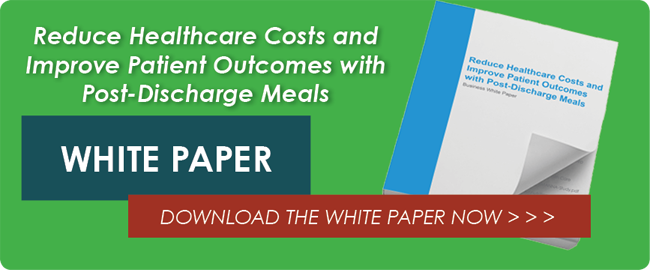1 Out of Every 3 Patients Admitted to the Hospital is Malnourished!
Many Americans are surprised to learn that malnutrition is a very real problem among hospitalized patients in the U.S. In fact, research has shown that approximately one of every three patients admitted to a hospital is malnourished. Left untreated, about two-thirds of those patients will become more severely malnourished during their hospitalization. Approximately one-third of patients who are not suffering from malnutrition upon hospital admission will become malnourished by the time they are discharged.
Malnutrition Increases the Risk of Complications from Diseases
 Malnutrition has far-reaching effects, causing impairment on many levels. Poor nutritional status impairs the immune system, delays wound healing, causes unhealthy changes in body composition, reduces muscle strength and can decrease the function and efficiency of vital organs and systems, such as the kidneys, respiratory and cardiovascular systems, and more. Malnutrition is also associated with fatigue, apathy and depression. These effects and others contribute to poor treatment outcomes as compared to well-nourished patients, including longer recovery times and increased risk of complications.
Malnutrition has far-reaching effects, causing impairment on many levels. Poor nutritional status impairs the immune system, delays wound healing, causes unhealthy changes in body composition, reduces muscle strength and can decrease the function and efficiency of vital organs and systems, such as the kidneys, respiratory and cardiovascular systems, and more. Malnutrition is also associated with fatigue, apathy and depression. These effects and others contribute to poor treatment outcomes as compared to well-nourished patients, including longer recovery times and increased risk of complications.
Malnutrition Increases the Length and Complexity of Care of Hospitalized Patients
Malnutrition among patients also has consequences for the medical facilities that treat them, as well as managed care organizations, health plans, and other stakeholders in the medical system. The effects of malnutrition can significantly increase the overall length and complexity of care in these patients, which substantially increases the costs associated with treatment. Additionally, poor nutrition and the poorer outcomes that come with it often mean more frequent hospitalizations – and in many cases, readmissions within 30 days of discharge. Newer reimbursement rules, implemented under the Affordable Care Act, impose financial penalties for readmissions. Per Kaiser Health News, beginning in October, nearly 2,600 hospitals will receive lower payments for every Medicare patient. These hospitals lost a combined total of $420 million due to the readmission penalty.
Home Delivered Meals Maximize Patient Outcomes and Minimize Costs
Providing home delivered meals after a hospitalization or as part of the treatment plan for chronic disease management can reduce complications and readmissions. For more information, read this article about MANNA in Philadelphia and how they reduced healthcare costs with home delivered meals.
Our white paper, Reduce Healthcare Costs and Improve Patient Outcomes with Post-Discharge Meals, reviews the body of evidence that shows how post-discharge meals can maximize patient outcomes while reducing healthcare costs. Download our white paper now to learn more about nutrition care during the post-discharge period and how nutrition care will improve your outcomes as a hospital, managed care organization or health insurer.











